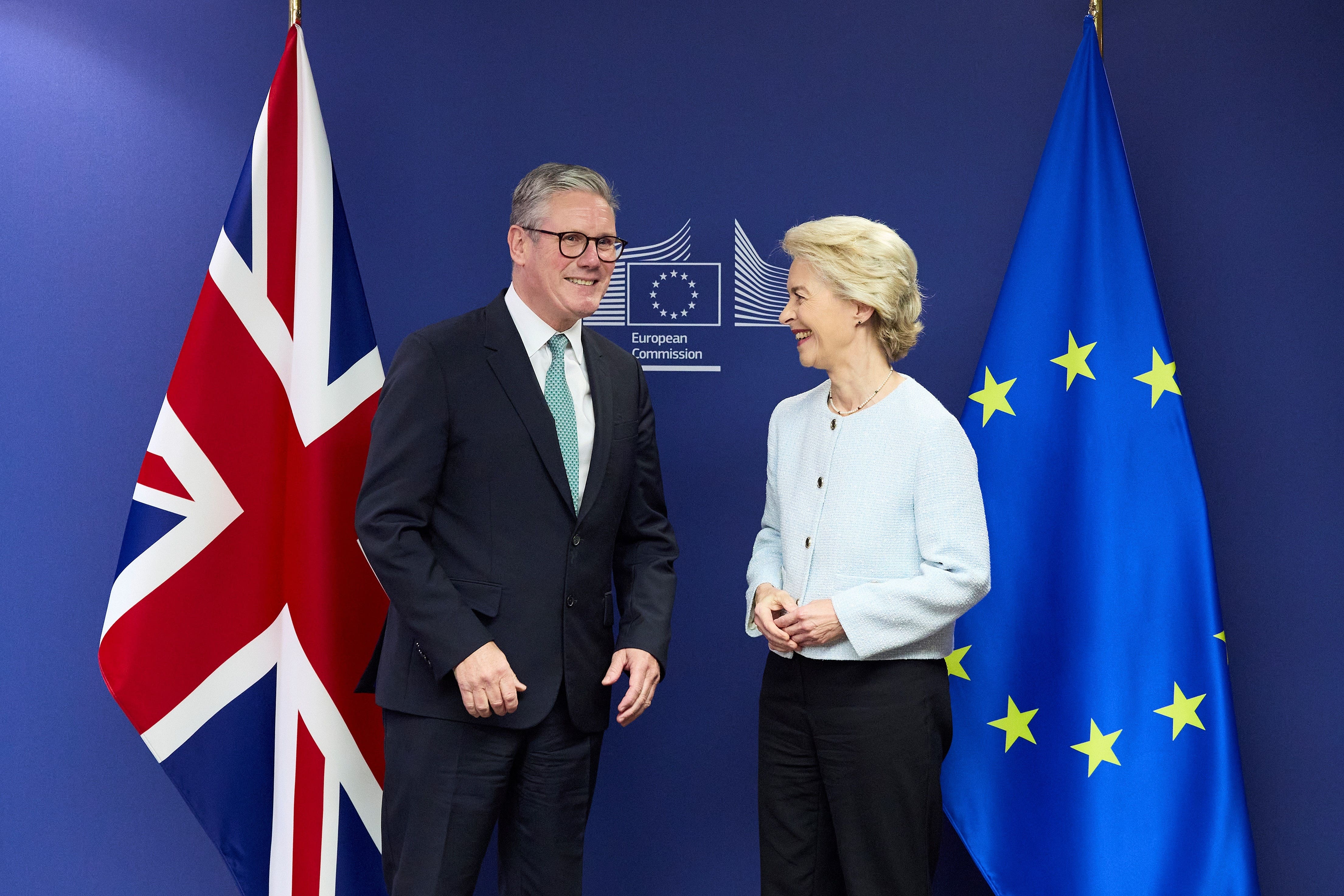Fears of rotting vegetables at border lead to new delays over Brexit border checks

Your support helps us to tell the story
Our mission is to deliver unbiased, fact-based reporting that holds power to account and exposes the truth.
Whether $5 or $50, every contribution counts.
Support us to deliver journalism without an agenda.
The third stage of the new digital border check system being rolled out to deal with the UK leaving the EU and its single market has become the latest part of the project to be delayed.
The government has announced that the third stage of Border Target Operating Model (Btom) will now not be implemented until 31 January next year, rather than its planned introduction on 31 October.
Btom has been hit by a string of delays in implementation over concerns it will trigger huge backlogs at the border and in turn hit supply chains.
Delays have been caused because of fears that perishable goods like fruit, vegetables and meat will rot at the border. The latest delay has also pushed back security checks on all other goods including electronics.

Dr Mike Galsworthy, chair of European Movement UK, said: “The perennial delays on implementing chunks of Brexit provide all the evidence needed that successive governments have known full well that Brexit simply does not work for working people.
“What’s more, it can’t be made to work, and can’t be forced to work. Instead of musing when the next spanner should be jammed into the works, we should instead put the economy first and finally tackle Brexit itself as the encumbrance that it is.”
The latest development comes just days after Sir Keir Starmer travelled to Brussels to kickstart the reset talks with Ursula von der Leyen.
He hopes to overhaul Boris Johnson’s flawed deal in 2020 to allow much smoother trade, improve defence and security relations, tackle crime and immigration together, deal with border hold ups.
However, it is still not clear what the prime minister’s objectives are amid a growing row over whether he should agree to a Youth Mobility Scheme for under-30s.
But experts are now warning that the reality of Brexit is that the UK could soon be crippled by red tape, with the Btom problems being held up as an example of what will go wrong.
Richard Kilpatrick, EU policy expert at EMUK added: “Brexit red tape is having a crippling impact on our economy, especially UK businesses with supply chains that depend on the EU. It is an admission that Brexit isn’t working.
“The government must capitalise on their reset of our relationship with Europe and deliver long-term stability for UK businesses. Regular last-minute extensions and using this as part of a negotiation are not good for British businesses. We need an inquiry into what our relationship with Europe could look like. Future membership of the single market and customs union must be part of that conversation.”
The government today published its guidance on why the delay had been agreed with the EU.
Marco Forgione, director general of the Chartered Institute of Export and International Trade, said: “The delay to the Safety and Security Declarations which were due to come into effect on 31s October have now been pushed back until January next year, which will be welcomed by some businesses.
“This is not a surprise as industry has seen little in the way of guidance being issued on the third implementation of Border Target Operating Model (Btom). The overall aim of the is to deliver a world-leading, digital first border system for the UK, not create more confusion and extra cost for business. We would urge the government to now step up the engagement programme in the lead up to the January deadline to ensure a smooth transition to the new checks.”
He added: “We need to eliminate confusion from this process and make sure businesses in the UK and EU are fully aware of the implications of the Safety and Security Declarations.”
“In terms of the Single Trade Window announcement, we welcome that the government wants more feedback and better engagement with industry. It is essential that the Single Trade Window delivers for business here, in the EU, and the rest of the world.



